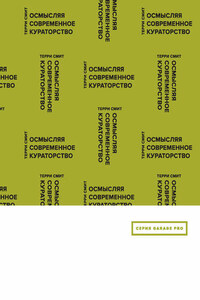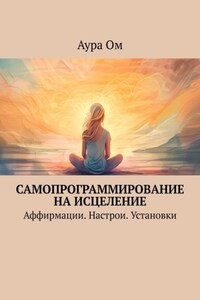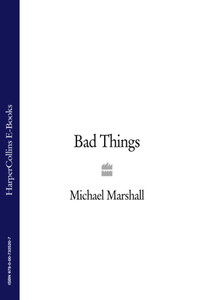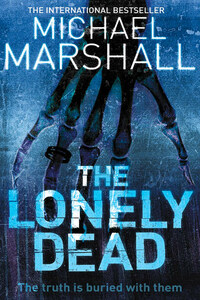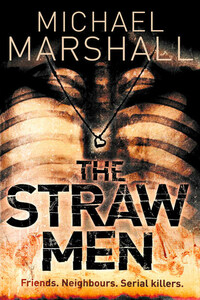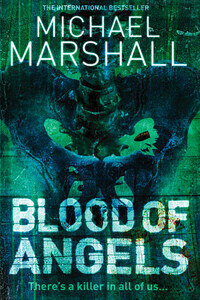MICHAEL
MARSHALL
THE STRAW MEN 3-BOOK THRILLER COLLECTION
![image]()
This novel is entirely a work of fiction. Any references to real people, living or dead, real events, businesses, organizations and localities are intended only to give the fiction a sense of reality and authenticity. All names, characters and incidents are either the product of the author’s imagination or are used fictitiously, and their resemblance, if any, to real-life counterparts is entirely coincidental.
Harper An imprint of HarperCollinsPublishers HarperCollinsPublishers 1 London Bridge Street London SE1 9GF
www.harpercollins.co.uk
First published by HarperCollinsPublishers 2015
Copyright © Michael Marshall 2015
Michael Marshall asserts the moral right to be identified as the author of this work
Cover layout design © HarperCollinsPublishers 2015
A catalogue record for this book is available from the British Library
All rights reserved under International and Pan-American Copyright Conventions. By payment of the required fees, you have been granted the non-exclusive, non-transferable right to access and read the text of this e-book on-screen. No part of this text may be reproduced, transmitted, down-loaded, decompiled, reverse engineered, or stored in or introduced into any information storage and retrieval system, in any form or by any means, whether electronic or mechanical, now known or hereinafter invented, without the express written permission of HarperCollins e-books
Ebook Edition © MAY 2015 ISBN: 9780008135096
Version: 2015-04-10
MICHAEL
MARSHALL
THE
STRAW MEN
HarperCollinsPublishers 1 London Bridge Street London SE1 9GF
www.harpercollins.co.uk
This edition 2003
First published by HarperCollinsPublishers 2002
Copyright © Michael Marshall Smith 2002
The Author asserts the moral right to be identified as the author of this work
A catalogue record for this book is available from the British Library
This novel is entirely a work of fiction. The names, characters and incidents portrayed in it are the work of the author’s imagination. Any resemblance to actual persons, living or dead,events or localities is entirely coincidental.
All rights reserved under International and Pan-American Copyright Conventions. By payment of the required fees, you have been granted the nonexclusive, nontransferable right to access and read the text of this e-book on-screen. No part of this text may be reproduced, transmitted, downloaded, decompiled, reverse-engineered, or stored in or introduced into any information storage and retrieval system, in any form or by any means, whether electronic or mechanical, now known or hereafter invented, without the express written permission of HarperCollins e-books.
Source ISBN: 9780006499985
Ebook Edition © MAY 2009 ISBN: 9780007325344 Version: 2015-04-10
HarperCollinsPublishers has made every reasonable effort to ensure that any picture content and written content in this ebook has been included or removed in accordance with the contractual and technological constraints in operation at the time of publication.
We are too late for gods
and too early for Being. Being’s poem, Just begun, is man. Martin Heidegger Language, Truth, Thought Translated by Albert Hofstadter
Palmerston is not a big town, nor one that can convincingly be said to be at the top of its game. It’s just there, like a mark on the sidewalk. Like all towns, it has a past and once had a future, but in this case that future turned out to involve little but getting dustier and more sedate, nudged ever further from the through lines of history: a stiff old faucet at the end of an increasingly rusty pipe, that someday is going to leak so badly that no water makes it to the end at all.
The town sits on the Allegheny River, in the shade of muscular hills, and has more trees than you could shake a stick at unless you had a lot of time and were unusually demented. The railroad used to pass close by, just the other side of the river, but in the mid 70s the station was closed and most of the track lifted up. Little remains of it now apart from the memory and a half-hearted museum, which not even the schoolkids visit much any more. Every now and then a few tourists will wander in, peer with bemused indifference at grim photographs of the long-dead, and then elect to get back in the car and make time. Though it’s been thirty years, long-term residents (and in Palmerston, they’re all long-term, and vaguely proud of it) still feel the absence of the railroad, like an amputated limb that itches from time to time. For some there were petitions and town meetings, bumper stickers and fundraisers; for others the change came quietly, numbly accepted as part of history’s entropic progress in some other direction. Were the town a little bigger and more boisterous, the overgrown track might make a good place to buy drugs or get mugged. In Palmerston it’s used mainly by earnest parents to trek children down at weekends, for pointing at birds and trees; and equally earnestly, a few years down the line, for those same kids to get each other pregnant in order to exchange one style of confinement for another.







